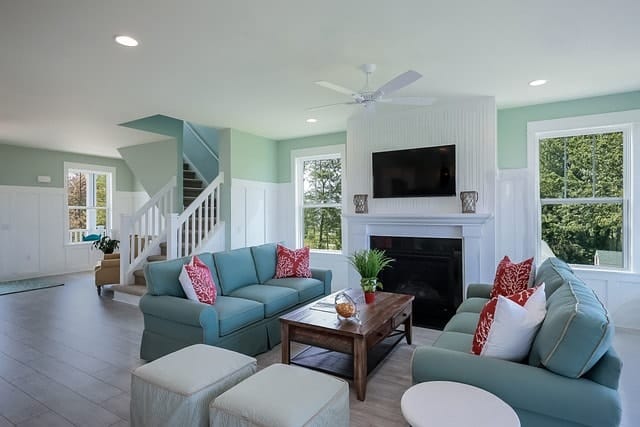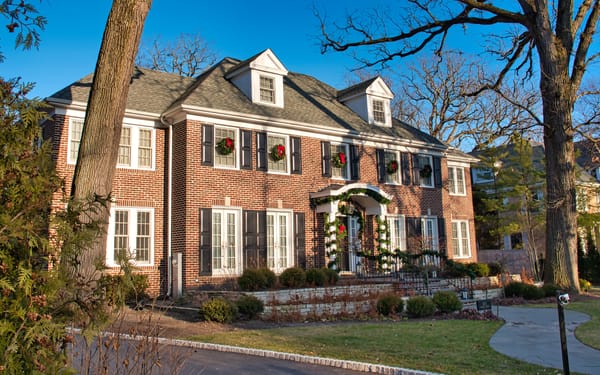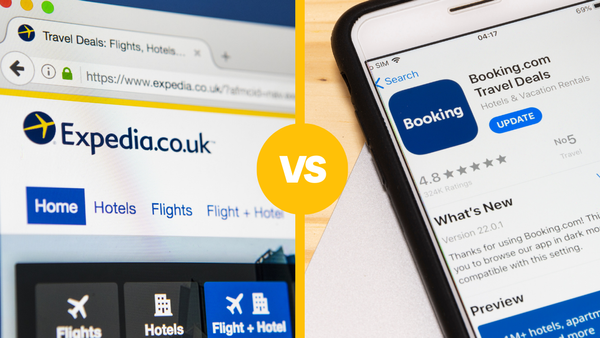6 Top Methods for Finding Rental Properties That Allow Airbnb

You’ve probably heard YouTubers, podcasters, and real estate experts talk about the “rental arbitrage” model. Some have found real success with this approach, building entire businesses around renting properties from landlords and subletting them on Airbnb.
A question may come to your mind: How do I find landlords who’ll allow me to sublet their property?
There are some solid reasons a landlord will let a tenant sublease through Airbnb. We’ll show you where to find these open-minded landlords and outline strategies and tips for negotiating a fair contract.
If you’re serious about short-term rentals, keep reading.
How to Find Airbnb-Friendly Apartments That Allow Sublets
So, where do I find landlords and owners of Airbnb-friendly apartments? There are several ways to find apartments you can lease for rental arbitrage. Start by choosing a location to narrow down your search.
Make sure you understand the short-term rental regulations in the area and confirm that Airbnb is permitted by local law. Do your due diligence to assess the profitability of your future venture—mainly by researching how Airbnb hosts are performing in that market. Then, you’re all set.
Here’s where to look for Airbnb-friendly properties.
1. Online Real Estate Websites
A great starting point is to explore websites and platforms that connect renters with landlords. Websites like Zillow, Trulia, ApartmentList, Apartments.com, and Zumper allow you to search specific locations and directly contact landlords.
Many of these platforms also include filtering options, so you can narrow your search by rental terms.
Other than these specialized sites, consider broader search platforms like Google, Craigslist, and Facebook Marketplace.
On Craigslist, you’ll find a range of rental types. Facebook Marketplace also provides an advantage, and you can join groups or communities focused on Airbnb or renting and check opportunities in your area.
Engaging in these communities allows you to connect with experienced renters who may connect you with landlords.
2. Networking
Real estate investors and professionals are constantly expanding their networks by organizing events and meet-up groups.
When you have the chance to introduce yourself in person to active players in the real estate business, you’ll be the first to know about who’s buying, investing, or renting out properties.
By building their trust, you’ll be at the top of your mind the next time an opportunity comes up.
3. Real Estate Agents
Realtors have connections with property owners and managers, sometimes leading to finding off-market properties or owners open to negotiation. You can offer them a commission as an incentive to help you get in contact with the right owner and sign a lease.
4. Ask Your Own Landlord
Tenants who have built trust with their landlords through consistent, on-time rent payments may be able to discuss and negotiate a subletting arrangement directly. Your landlord might also have contacts or friends interested in subletting condos or apartments. He may also allow you to list a spare room on Airbnb (if not the entire unit).
5. Reach Out to Underperforming Airbnb Hosts
This approach is often overlooked but can be well worth trying. Hosts who are already on Airbnb understand the vacation rental business. Why would they agree to let you sublet their property if they’re already active hosts themselves?
In this case, focusing on underperforming properties makes sense. If a listing isn’t performing well, it may indicate the host lacks the time or resources to be fully dedicated.
By presenting a plan to enhance the space with cosmetic improvements, by adding amenities, and by offering high-quality service, you create a mutually beneficial opportunity.
It’s also worth noting that Airbnb introduced a new Co-host Network in its 2024 Winter release, allowing owners to find co-hosts to manage their Airbnb. This trend shows that many property owners may also be open to letting you sublet on Airbnb.
6. Pitch Landlords in Your Neighbourhood
A direct approach to finding Airbnb-friendly rentals is to explore your neighborhood and look for a “For Rent” sign.
Driving or walking around the area allows you to quickly spot available units and reach out directly.
The benefit of pitching landlords in your own neighborhood is that you’re nearby, which can make the arrangement more appealing to them.
You can emphasize your familiarity with the area, share insights on local demand, and highlight how your management can boost income and reduce vacancies.

Tips for Negotiating with Landlords
Now that we’ve understood how to find Airbnb-friendly apartments, let’s focus on closing the deal. Your prospects typically have specific questions, doubts, and maybe some resistance. People who have never done Airbnb rentals before may be concerned about some common issues.
To get the landlord to rent you the property and allow you to sublet it on Airbnb, you’ll need to build trust and show that you’re a serious partner. One of the biggest concerns a property owner has about rental arbitrage is whether the house will be well-maintained.
Your biggest priority should be to clear up these doubts and prove that you do a legitimate business. As soon as you make them feel comfortable with the idea that an Airbnb business is just as safe as long-term renting and show up as a trustworthy partner, you’ll dispel most concerns they might have.
Here are some practical tips for negotiating.
Prepare Your Pitch
After you find landlords to pitch, it’s best to meet with them in person and have a conversation. Does it take some practice to become a successful negotiator?
Yes, absolutely. That’s why you should highlight the benefits for the landlord.
Short-term Airbnb rentals are inspected and cleaned after each guest, which means that you will be able to react quickly to address any wear and tear and keep the house in pristine condition. In contrast, some long-term tenants don’t care as much and let maintenance issues pile up.
Finding a new tenant, screening them, and checking their background takes time – in the meantime, the property stays vacant and they lose money. With short-term rentals, landlords won’t have to worry about late rent, and they avoid the lengthy eviction process that comes with problematic tenants.
To sum up, make sure to include these points in your pitch to convince the owner why they should allow you to sublet on Airbnb.
Overcome Common Objection
Be prepared to answer some common objections that are likely to come up:
- Some owners simply aren’t familiar with the concept of rental arbitrage.
- They think subletting is illegal. Some owners are unaware that subletting can be done legally.
- They’re worried about potential problems like noise, parties, and additional wear and tear on their property.
- Concern about other tenants’ privacy being compromised by short-term guests.
- Subletting isn’t included in their insurance policy. They may not have the proper coverage for short-term rental activities.
Revenue Sharing Agreements
A landlord could ask you to share profits if they agree to let you sublet. Now, revenue-sharing agreements are not compulsory for these kinds of arrangements.
This business model does not inherently require a revenue-sharing agreement with the property owner. Instead, you can negotiate a fixed monthly rent payment, where the renter/host assumes more of the risk and potential upside.
Whether you negotiate a percentage split or a fixed rent depends on the landlord’s flexibility and your negotiation skills.

Building Rules: Comply With the Regulations of Apartment Buildings
You also want to look for apartment buildings that allow Airbnb rentals.
Many apartment buildings have their own rules and policies that tenants must follow, such as quiet hours, restrictions on noise, and limits on the number of guests.
As an Airbnb host, you’ll need to be diligent about following these building rules to avoid any issues with the landlord or complaints from neighbors.
Some buildings may even prohibit short-term rentals altogether, so it’s crucial to thoroughly vet the buildings before signing a lease. Understand and comply with the building’s regulations, and you will maintain a good relationship with the landlord and the building’s community.
And if you plan to build a vacation rental portfolio that stands out, consider using automation tools like iGMS to help you keep both your guests and property owners satisfied, while boosting every dollar of your rental income.






